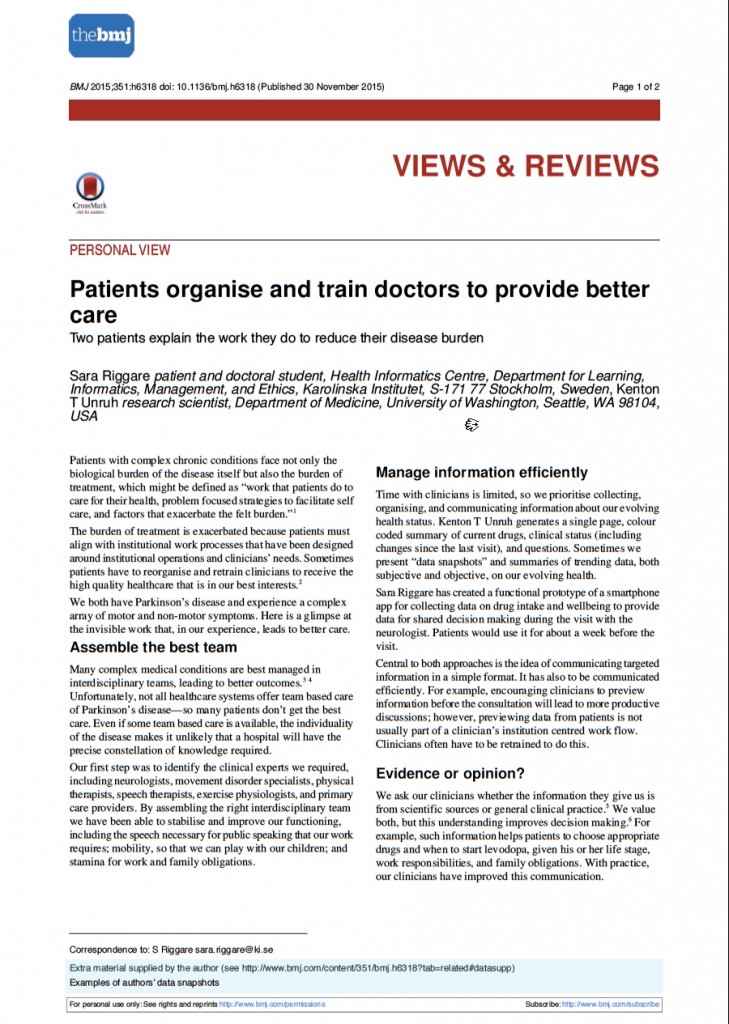As SPM advances the cause of patients as responsible drivers of their care, we sometimes hear denials or complaints from physicians who feel that e-patients needy, uninformed, self-centered burdens on busy clinicians’ time. Well, here’s a juicy counter-example – in the BMJ, one of the world’s leading medical journals.

Sara at Medicine X
Swedish SPM member Sara Riggare is co-author of this article in the BMJ that I hope many future authors will cite: Patients organise and train doctors to provide better care (BMJ 2015;351:h6318.)
Its importance in the participatory medicine movement is that it documents the specific things that Sara and co-author Kenton Unruh do to carry, organize, and manage a significant part of the burden of case management, in their partnerships with clinicians. (Both have Parkinson disease.) Future authors will be able to cite this in their own articles, making this topic part of the literature of participatory medicine.
If you know of other such citable sources, please add them in the comments.
Here are a few of the important points Riggare and Unruh make that, I can say from experience, are not widely known:
- “Patients must align with institutional work processes that have been designed around institutional operations and clinicians’ needs.”
- “Many complex medical conditions are best managed in interdisciplinary teams, leading to better outcomes. Unfortunately, not all systems offer team based care of Parkinson’s, so many patients don’t get the best care.” [emphasis added]
- “By assembling the right interdisciplinary team we have been able to stabilise and improve our functioning.”
- “Time with clinicians is limited, so we prioritise collecting, organising and communicating information about our evolving health status” [with examples of how each of them prepares the information for efficient display – Unruh with graphics and Riggare with a prototype app she’s developed.]
There’s more, but you get the idea: these are patients who are being responsible partners in their care. This is what’s possible in the new era of patient-clinician partnerships with engaged, empowered patients.
Thank you to the BMJ for its Patient Partnership initiative, including hosting a patient advisory panel (of which Sara is a member), and for publishing articles like this.
Spread the word.







That patients can indeed train and organize physicians and their teams does not come as a surprise to many of us who have navigated swamps and helped other patients to do so! We love the doctors who thank us patients for the work we do on their behalf (it’s really for ourselves and other patients), and we know that our input truly benefits others.
Patients with complex and rare diseases simply must often rely on one another, as there is not a body of literature to which they can turn. Congratulations to all those who have been part of this work!
You should compose a story or two and either add it as a comment here or – even better – on Sara’s article on BMJ.com!
If you are not a subscriber you can’t comment on Sara’s article. I tried a week ago.
Thanks – I’ll see what I can do about that. Meanwhile by all means post what you have, here.
And BRING FRIENDS to do the same!